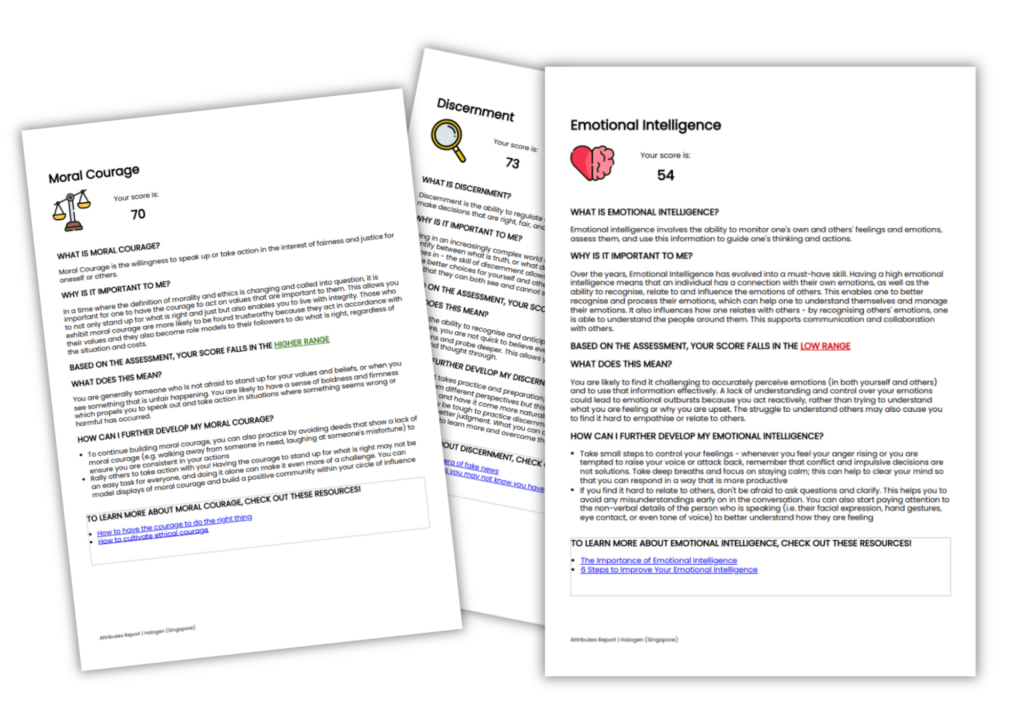The idea of interviewing with potential clients can be intimidating, especially if you’ve only started your marketing consultancy business. But although getting jobs is of crucial importance, it’s even more critical that you and your new client are a good fit. After all, a business is like a sports team where all the players need to follow the same game plan.
With this in mind, it becomes clear that initial conversations aren’t just about impressing prospects. Instead, they’re the secret to finding out whether a venture is worth investing your time and effort in.
By having an arsenal of questions they want to ask, marketing consultants can prepare for interviews more efficiently.
- First of all, asking the right things will allow them to position themselves as experts.
- Secondly, the client’s answers will show whether the pairing would be a good fit.
- And finally, the initial interview will ensure valuable data and information, which will be an integral part of providing a high quality of service.
This article covers 26 key questions marketing consultants should ask prospects.
Note: If you’re looking for a way to develop a framework to assess clients during a full-blown client intake process, we highly recommend this step-by-step article.
1. What is your company’s mission?
Though this is a piece of info you could get off of a potential client’s website, you must have a full understanding of what they’re trying to do. And not just that, but what their motivation is – what kind of customer value do they hope to deliver. As far as they have a clear mission, you have a basis for a solid marketing strategy. Otherwise, it’ll be your job as a consultant to help them find it.
2. How do you define success?
Once you have an idea of their motivation, you need to find out your prospect’s goals. These need to be well-defined if you’re going to develop a strategy that’ll be able to serve them correctly. If this condition is not met, your efforts will be futile – you’ll be wandering in the dark, without a clear destination.
3. How do you measure success?
As a marketing consultant, you know that the metrics for a well-executed marketing campaign include a high ROI, increased conversion rates, decreased bounce rates, and a high customer satisfaction level. But your potential clients may have something different in mind. Their idea of a good marketing campaign might be one that brings in a boom in terms of inquiries.
To know what your future cooperation should focus on, make sure you find out what your prospect’s key metrics are, as well as the measuring methods they use.
4. What needs to happen for you to meet your goals?
Some may think of this as a trick question. After all, aren’t you supposed to come up with a plan? But, the truth is, your client needs to have an awareness of exactly where they are at the moment. Furthermore, they need to know how much work they’ve got ahead of them. Not having both feet firmly on the ground is a red flag.
5. Why hasn’t this happened already?
Again, this type of question might be putting your prospects in an uncomfortable position. If they’re objective, they’ll tell you about the challenges they’ve faced so far, which will be great information for the continuation of your cooperation. If, however, they start placing blame, well, in that case, you’ve got yourself another red flag.
6. What is your brand story?
Branding has a significant impact on business results. As it’s the main way to communicate values to customers, it might also need some work. As a marketing consultant, you need to have a clear idea of how the company’s branding had been handled so far. Especially as it could influence how you can proceed in the future.
7. What makes your products/services unique?
In other words, what’s your strategy for standing out in the market. Whether it’s the price, customer service, quality, or exclusivity, what you want to assess here isn’t just a selling point. You want to get a better feel of your client’s passion and commitment, as, without these, you’d need a miracle to see excellent results.
8. Who is your typical customer?
Whether a client has an answer to this question is going to tell you a lot about how much help they’ll require. On the whole, they may already have a defined target audience, but in the end, it’ll be your job as a consultant to refine it based on data and potential.
9. How do you identify customer pain points?
Identifying customer pain points is a critical piece to connecting with those customers and positioning your product/service as the solution. As a marketing consultant part of your job is figuring out how the prospective client is doing in this regard.
10. What is the typical customer journey/lifecycle?
Most companies come into contact with people at various stages. Some are ready to buy immediately, because they are already aware of the problem and the solution to the problem (your prospective client’s product or service). Others need more convincing, education, nudging, etc. Marketing tactics will vary depending on where someone is along the customer journey. For instance, the sleep focused site Each night displays various content verticals that loosely map on to someone’s stage in the customer journey.
Your job as a consultant is to go under the hood and see how the prospective client is managing this whole process of leading people from awareness to consideration to buying. Plus, if you do find yourself negotiating with someone who hasn’t grasped the idea of a customer-oriented approach to business, you might have to send them some of your own lead-nurturing content.
11. What have been your most successful marketing tactics so far?
It’s good to know what worked for your clients in the past. Though it might not be the path you choose going forward, it is still a way to assess their maturity and get a better understanding of their needs. It’s even better to do this part before the interview happens (see assessment example below), as it’ll give you a better way to prepare for the meeting.
12. How quickly do you expect to see results?
Selling is all about managing expectations. Being aware of your client’s expectations, as well as giving them timelines on what’s achievable with their goals and budget in mind, will make sure no one feels let down.
13. How big is your current leads list?
Here, you’re after cold hard facts. Even at first glance, a leads list will indicate how well a company is doing against the industry average. Plus, it’ll give you a better idea of what you can expect to be working with.
14. What is your current conversion rate?
Though conversion rates differ hugely over industries, this is still a great question to ask. First of all, it’ll indicate how well your prospective clients compare to their competition. Secondly, it’ll give you valuable insight into how their measuring system is set up at the moment.
15. How many sales/conversions do you need/want per month?
Now, this may sound like it should have been covered when discussing goals, but the intention here is slightly different. You’re not interested in your prospect’s idea of success. Rather, you need to have a clear idea of what type of results will be profitable for their business in the long run.
16. Who are your competitors?
While you should research this on your own before the interview, it’s still a good idea to get a sense of who your clients feel they’re competing with – you’ll get valuable insight into their self-image and ambitions.
17. What are your weaknesses compared to the competition?
This is another question that doesn’t have a right or wrong answer. Here, your goal is to see how objective your clients are at assessing their own weaknesses, as well as to get a better idea of how well they handle criticism. If you’ve done your homework and have already identified their biggest competitors, it’ll show them your grasp of the subject matter. Plus, it’ll be a great indicator of whether you’re on the same page.
18. How about your strengths?
Some people feel like it’s too braggy to talk about their achievements. But in truth, that’s what marketing is often about. Get an idea of how aware they are of their selling points, and note which ones they’re most proud of. It won’t hurt if you actually try to use the potential client’s product or service before the meeting, as this will give you a better understanding of what you’re dealing with. (Plus, it’s likely to impress them)
19. What are the limitations of the market you’re operating in?
Here’s the deal: some strategies sound great in theory, but for one reason or another, they don’t show results in certain niches or markets. It’s good to know whether your clients are aware of this fact. Before you head to the interview, prepare a few examples of what could work, and don’t be shy about sharing a couple of failures – they’ll show your experience, and your ability to learn from it.
20. What is your customer retention strategy?
Everyone knows that retaining customers costs less than acquiring new ones. So finding out whether your prospective clients are taking advantage of the potential savings is valuable information. In fact, it could be one of the easiest fixes you do once you start your collaboration.
21. Who does your marketing at the moment?
Perhaps this question goes even without saying. Here, your objective is to learn more about your client’s journey to contacting you. They should be able to tell you their pain points, as well as what changes they’re seeking. It’s your job to assess their expectations, and determine whether you’d be a good fit.
22. What is your budget?
Good marketing doesn’t have to be expensive. Just think of campaigns that show off user-generated content, like the #MoleskineCity one. Nonetheless, you need to have a clear idea of how much your prospects are actually willing to spend. And perhaps even more importantly, you need to consider whether you’re ready to work with what they can pay.
23. What tools do you already use?
In addition to finding out what tools (such as VoIP or certain CRMs) your prospects are already familiar with, software preferences can also be a good indicator of what they expect to receive. If you do end up working together, this is going to be a great piece of info.
24. Describe your ideal working process.
Most people will have different expectations when hiring a marketing consultant. Some will want you to do all the work. Others will already have a team and will be looking for a collaboration that maximizes the potential of success. Then, of course, some people say they want help, but in fact, they prefer to do things on their own terms. The answer to this question should give you a general idea of what you can expect.
25. What’s your preferred way of communication?
Some clients will expect you to wine and dine them, prepare lengthy reports, and dance circles around them. Others, on the other hand, will be happier with a more time-efficient way of communication. In the end, you will have to decide whether you’re ready to play by someone else’s rules.
26. How do you feel about taking risks?
Alternative ways of reaching customers offer the potential for big rewards. However, they come with certain risks. Being on the same page about the willingness to take such risks is going to be a great piece of information – one that could save you hours of wasted work in the future.
Conclusion
There you have it, the 26 questions you should consider asking your next prospective client. Whether you ask them all at your initial meeting or conduct several rounds of consultations may depend on your own consulting approach. That said, transforming these types of questions into a sort of digital maturity assessment can be a great way to jumpstart a project effectively. Or you could even feature it on your website as lead generation tool.
Either way, a great collaboration relies on trust and understanding, so listen closely and listen between the lines. This way, you’ll find customers who are the right fit for you, and you’ll be more than ready to deliver.








